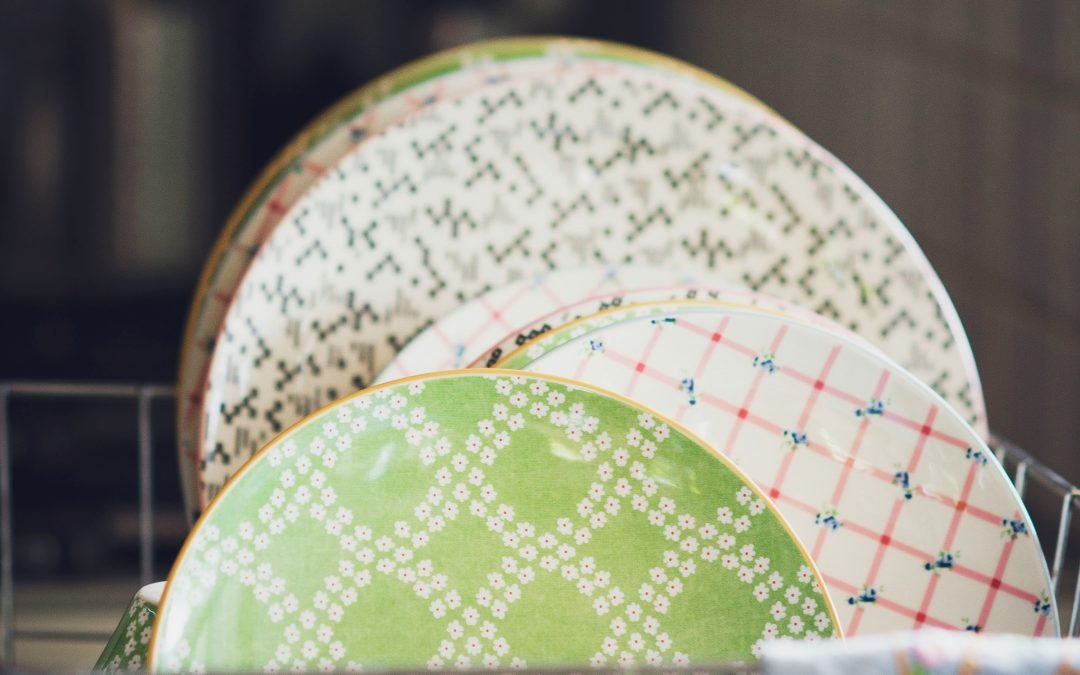Sarojamma was a maid in Bangalore, and this is her story. Ever since I began writing, a few stories of strong women have slipped into my fiction as characters. The mother-in-law in this story is based on my own. I added a few fictional ingredients and cooked up this short fiction. This was an entry written in September 2022 for Tell Me Your Story – TMYS, Story Project 10, a niche publisher focusing on Women’s History among various other topics, and was published in an anthology titled DEVI.
A MOTHER LIKE NO OTHER.
Sarojamma was the hot topic of discussion in our apartment complex, ‘Swagat’, since the news of the marriage broke out. During the morning walks on the rubberized tracks that snaked around the massive 15 towers, spread in the shape of the alphabet S, whispers about Sarojamma rent the air.
Red-haired aunties in salwar-kameez and Adidas sneakers swung their dumpy arms in tandem, discussing the latest gossip – the wedding. Porky uncles in shorts and T-shirts with UCLA and NYU flashing in bold letters huddled in the corner of the tennis court, gesticulating and muttering about where the world was headed. Nubile girls in posh tights displaying Victoria’s Secrets and theirs, jiggled and trotted ahead of the aunties, sipping kale juice as music blared from their ears. The ball missed the basket and bounded higher as the acne-ridden boys collectively exhaled, their eyes not on the ball bouncing on the ground.
The wives served hot puris and dished out information on the upcoming nuptials for which they were collecting gift money. The bewildered husbands bobbed their wool-gathering heads.
If you were wondering who the…, well, let us not resort to crass language as we are all educated society people. So, who was this Sarojamma, and why was she on the radar in ‘Swagat’, the multi-storeyed residential towers in JK Nagar in the Garden City of Bengaluru?
Sarojamma was our 62-year-old maid, working in many houses in ‘Swagat’, and most of the residents called her ‘amma’ or ‘ajji’. I stayed in the B tower on the 9th floor, and Sarojamma managed to keep our utensils and floor spotless.
To set the context right, I need to narrate the story from the time before I heard about the wedding.
Sarojamma huffed and puffed as she reached the gated community. She wiped her face, taking care not to smudge the red circle of vermilion right in the middle of the lined forehead. Then, she proffered the identity card to the watchman, who blinked his eyes rapidly and said, “I can’t believe that you are arriving late to work!”
The reticent Sarojamma flashed her perfunctory smile, revealing her betel-stained teeth. She waited while the watchman performed the customary entry of her details in the register. Finally, she trudged up the walkway, entered the elevator, and reached her workplace.
The livid lady of the house answered the doorbell. “This is the third time you have been late in the past six months! At least buy a mobile phone, so I can call you to find out your whereabouts.” Raji peered through her glasses, lashing at Sarojamma, who swiftly moved to the kitchen and worked at the sink that brimmed with dirty dishes.
Raji, a freelance writer working on an article, went back to typing on her laptop. She inhabited the large apartment with her twins, husband, and his mother. The master of the house mostly trotted around the globe while Raji juggled with the kids, work, home, and managing the cantankerous mother-in-law.
That would be me, the cantankerous one. This term was first used to describe me by a section superintendent years ago when I was a lower-level clerk in a state government office in Madras (now renamed Chennai.) Old names and old people were chucked away into the annals of history. I had regaled the office incident to my dearest daughter-in-law once upon a time, and it has been her favourite word since. However, pardon my digression; it happens frequently nowadays. I got lost in my chain of thoughts. Where was I?
Sarojamma washed the vessels and neatly organized them on a towel to dry. Then she took the broom and meticulously swept room by room, collecting the fine dust and hair into a dustpan. She entered Raji’s room with a gentle knock on the door. Raji gestured with a finger on her lips, listening intently on her mobile. With International Women’s Day approaching, she was wrecking her fingernails, googling inspirational women to write an article. My suggestion of ‘me’ being the suitable example attracted smirks. Sarojamma quietly tiptoed and swept the room clean as Raji stared at the blank screen.
Even though engrossed in the daily soap on Sun TV, my eyes and ears were all over. The story never progressed, and I could catch forty or fifty winks midway and still wake up to the same sobbing scene. I diligently followed the doctor’s advice and planted myself on the balcony, sharing space with the numerous potted plants in the mornings, soaking in the sun. Thanks to my well-oiled (coconut oil, a miracle worker!) genes, my eyes and ears were attuned to the minutest sight and sounds. After watching the drama unfold in the walking tracks, I did my daily ablutions, and then it was TV time until lunch.
Saroja and I were in the same age bracket. For a few seconds, Sarojamma let herself get distracted by the TV. While I was relaxing and enjoying my old age, Saroja toiled from dawn to dusk. When the advertisements started playing, I muted the TV and turned toward her.
“Why were you late today? Raji was blistering.” I winked at Sarojamma.
“It is my son’s death anniversary, amma. So, I had to finish the rituals before coming to work.”
“Oh! It’s been what, four years now?” Sarojamma had just begun working in our house when tragedy struck her life—a disaster no mother should ever encounter.
Sarojamma lived in the settlement behind our complex with her drunk, invalid husband and two sons. The eldest eloped with his school sweetheart before the class 10 examinations began. When the girl’s parents bawled and cursed, Sarojamma stood in front of her son and wife, shielding them. Taking in all the abuses, she welcomed the newlyweds and provided for them. Soon, grandchildren crawled while the son did odd jobs to support his bounty. The younger son completed his higher secondary and applied for a bank loan with which he purchased an auto-rickshaw. Sarojamma prided herself on his achievement and began the search for a suitable bride.
Precisely after six months of their wedding, an erratic lorry rammed into him head-on on a dark, rainy day, and the auto-rickshaw and the young man were mangled beyond identity.
Sarojamma’s smile never reached her eyes after that day.
“Hmmm. I still wonder if only he hadn’t gone out on that stormy night, driving his auto-rickshaw.” Sarojamma swallowed as tears pooled in her eyelids while the memories shrouded her.
“We cannot win over fate. I know the pain of losing a son. I lost mine when he was ten years old. So many years ago, but the scar remains.” I often wondered if motherly love or loss was measured by the number of years of her child’s life. People offered commiserations to me, saying, ‘You lost your child quite early. Imagine losing a well-grown son.’ What do I tell such people?
Sarojamma went ahead and mopped the house while Raji cooked lunch. I dawdled with my hands looped behind my back, inspecting the drying vessels and the cut vegetables, and peering into the boiling, frothy substance on the stove. This irked Raji, who turned her head, gnashing her teeth, and mumbled, ‘She must check on what I cook, cut, etc. Now she will come with some caustic comment.’
“Are you cooking carrots? Boil them well.” I said, twitching my eyebrows.
“I know you don’t have teeth, and I always boil and cook to your taste.” Raji boiled.
“I know. Still, I am reminding you.” A chuckle escaped me at having succeeded in my endeavour to rile up my daughter-in-law. Old age was boring without some drama.
Sarojamma finished her chores and sat cross-legged on the floor.
“Stay for lunch, Sarojaamma. You are free for the next few hours, isn’t it?” Raji threw a glance at her while she tempered the curry.
“Yes, Shanti madam will come after Monday. So, I am free. No Raji-ma, I am fasting today. No solids. Give me tea if possible.”
“Why tea? I will make Horlicks for you. But why are you fasting?” Raji’s brow furrowed.
“A prayer to our family deity for my daughter-in-law’s wedding.”
“What?” interjected Raji and I in unison.
“Yes, amma. My son’s wife is too young to spend the rest of her life as a widow. I was waiting for her to complete her degree course.” Sarojamma had paid for her daughter-in-law’s college education.
Raji set the hot beverage next to Sarojamma and pulled the chair beside me. “What about your grandson?” Raji asked with a worried expression as she rested her ample back on the chair, which emitted a low groan.
“A good family boy has agreed to marry my daughter-in-law. He said she could bring her son too. But the groom’s mother is not too keen on taking my grandson. My elder son and daughter-in-law assured her they would bring up the little boy as their own.”
“How sweet of them. But will the mother be able to stay away from the child?”
“She sobbed a lot, but I have drilled sense into her. She can visit us to see her son. But she needs to start living her life again.”
“Hmmm, you are quite a progressive woman, Sarojamma.”
Sarojamma opened a bundle tied to her sari. She spread the betel leaves, picked two, wiped them, and plucked the stalk. Then she applied the slaked lime paste and added fragrant areca nuts. Finally, she folded them and placed them in her mouth.
“Oh, this is not a good habit. Why don’t you quit?” Raji implored.
“This is my only vice. Let me be, dear Raji-ma.” Then, chewing for a while, she continued, “I am a woman who knows the difficulty of surviving without a man. My husband is very much alive, but a good-for-nothing guy. He drank and never earned a penny ever since we married. Then, fortunately for him, he fell sick with paralysis, and the whole burden of running a household and taking care of him fell on my shoulders.”
“I didn’t know your husband was alive, Sarojamma.” I blurted out and bit my tongue. I had assumed Saroja was a widow like me. However, the big circle on her forehead belied my belief. I also sported a tiny dot, but nowadays, everyone is a liberal.
“A woman dresses for her husband. Mine was as good as dead. If I dress up, he asked, for whom are you decking up? So, I withdrew from everything. My sons are my life. When God took my younger son, it shattered me. The grief never ebbs. But I had the responsibility of guiding my young daughter-in-law.”
Sarojamma got up to leave. Raji hugged her while I patted Saroja on her shoulder.
A look of understanding passed between us, the stronger sex.
At lunch, I relished the carrots. “Raji, the carrots are cooked well. Thank you.”
Raji’s countenance lit up. “Amma, there is ice cream in the freezer. Shall I serve you a scoop?”
“Ah, excellent.”
Later in the evening, Raji asked me to proofread the piece she had written for Women’s Day. A mother like no other – The untold story of Sarojamma.
&*&
Photo By – Unsplash Tracy Hocking



Beautiful